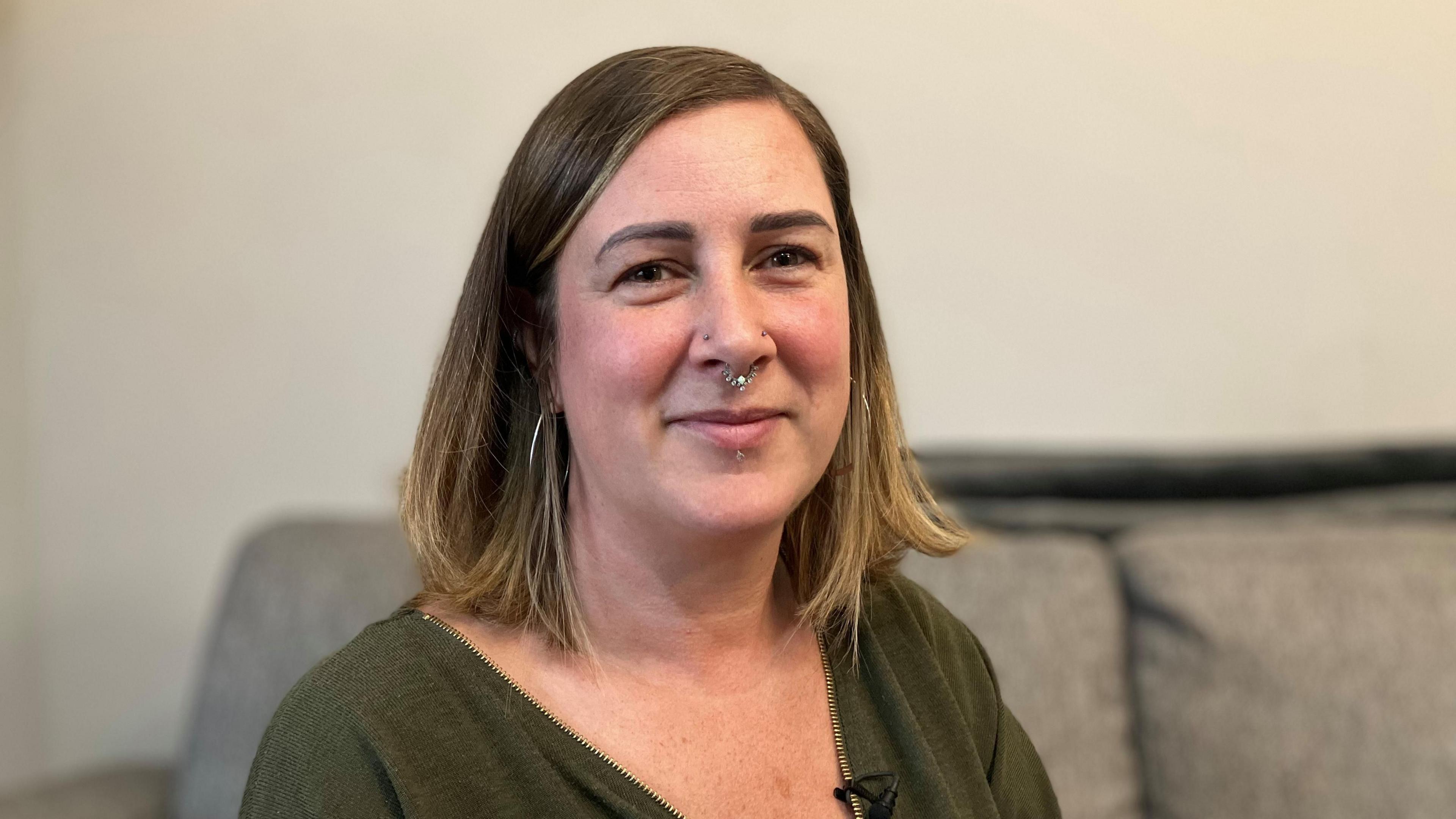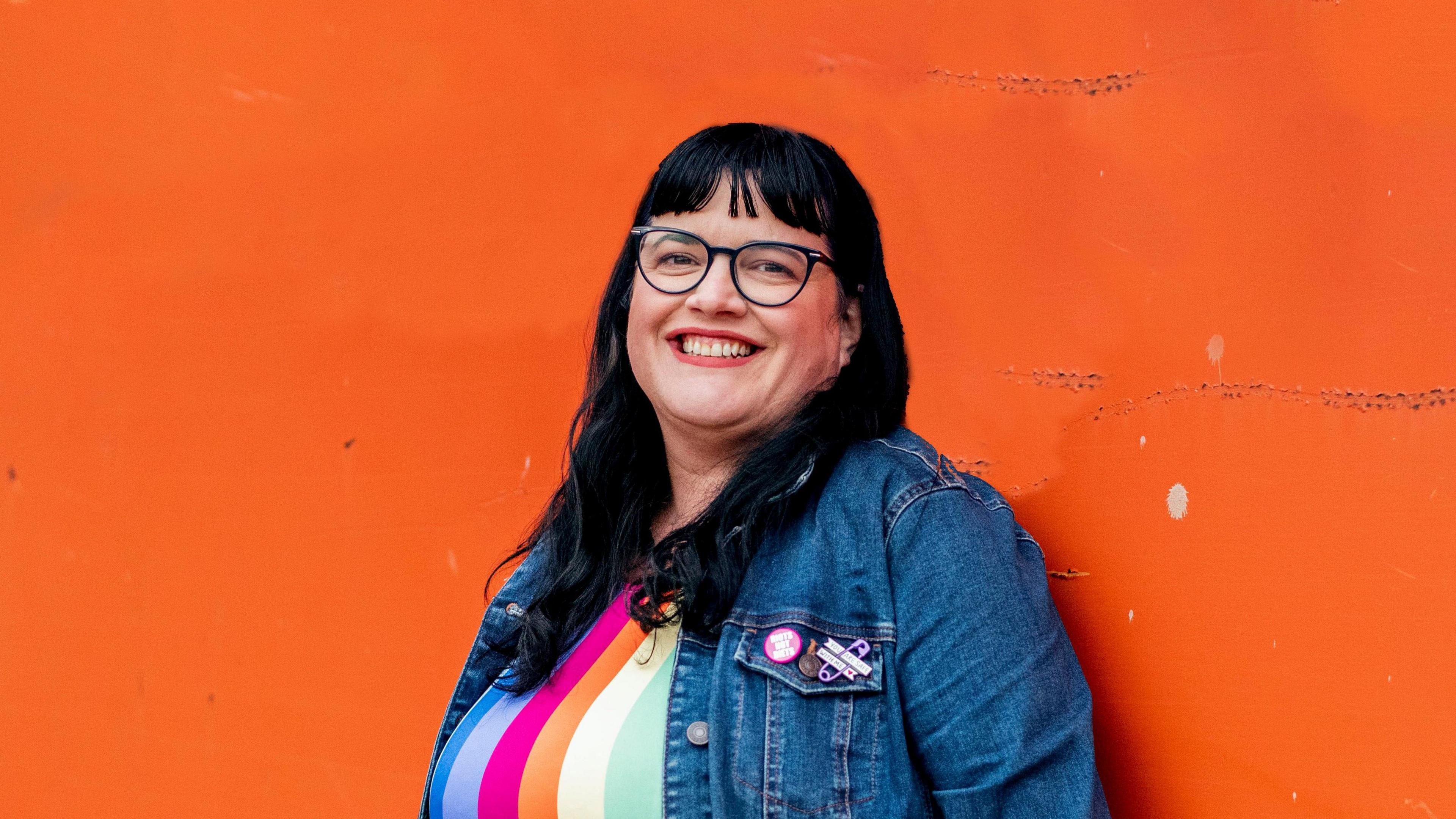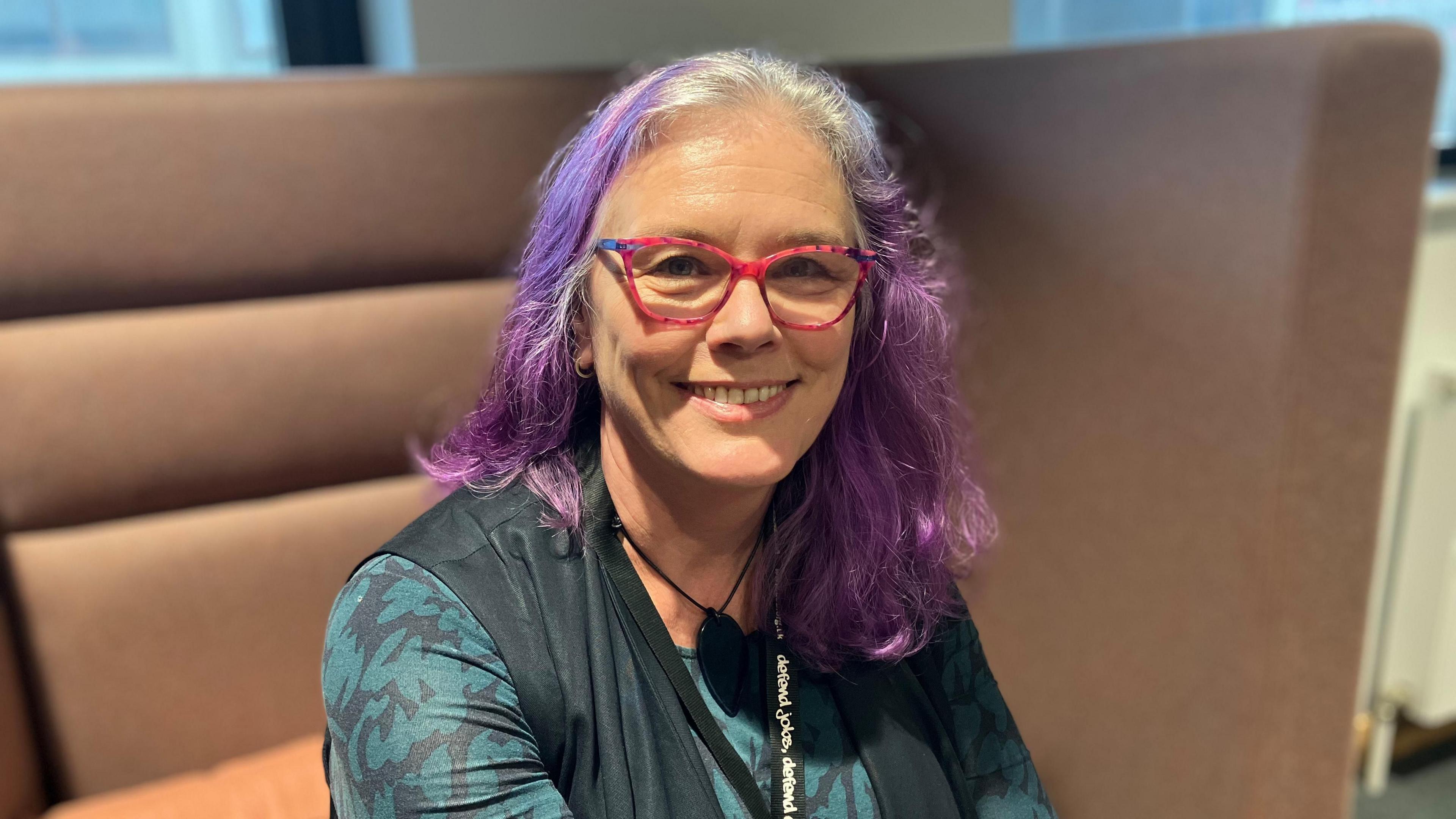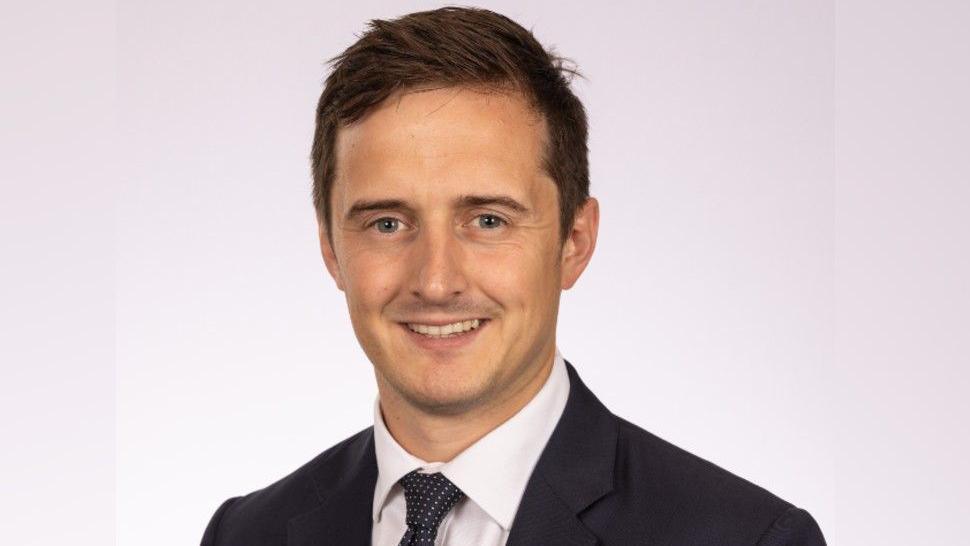Unaccredited online schools cost more than £400k

Online schools offer live and recorded lessons for children who are unable to manage in mainstream schools
- Published
Children with complex needs are being sent to unaccredited online schools at a cost of hundreds of thousands of pounds.
Some say the placements are a "lifeline" for families whose children struggle in mainstream schools, but concerns have been raised about the lack of oversight within the growing industry.
Online school placements can be commissioned by councils for children who are unable to cope in mainstream schools, usually due to special educational needs and disabilities (SEND).
The schools offer live and recorded lessons for individual pupils and small groups. Most children who attend are at home, but some may join from a quiet room in their mainstream school.
The government says councils should only use online schools which are accredited by a voluntary scheme, external set up by the Department for Educations in 2023.
The scheme sees providers visited by education watchdog Ofsted, which examines areas like safeguarding and staff training.
So far, eight online schools have joined the scheme but others said its criteria are too restrictive, particularly for part-time providers. The government has said there are no plans to change the eligibility criteria.
According to a freedom of information request, external, 62 children in Somerset had funding to attend 14 unaccredited schools from April 2024 to January.
The placements cost Somerset Council more than £400,000 - double the amount spent during the previous full financial year.
The council said it had to use non-accredited providers "from time to time" due to an increase in demand for alternative school places.
The fact an organisation is not accredited does not mean no checks are made, as local authorities also have quality and safeguarding checks in place.
'Incredibly frustrated'
Gemma Barrett lives in Somerset with her three children. They are all neurodivergent and have spent time out of school.
She said one of her children had been out of school for more than a year and was "desperate to start learning again" when online tuition was offered.

Two of Gemma Barrett's children have been offered online tuition
Her teenager has pathological demand avoidance (PDA), a profile of autism which sees children go to extremes to ignore or avoid anything they perceive as a demand or expectation.
Ms Barrett said the company assured her its teachers were trained and experienced at dealing with PDA, but the arrangement broke down after her child's teacher revealed they had "never heard" of it.
Ms Barrett said the teacher was also only qualified up to primary level, despite her child working towards their GCSEs.
She said the experience left her "incredibly frustrated" and her child "really upset".
Heidi Mavir, founded EOTAS (Education Otherwise Than At School) Matters. It is based in Wakefield and supports families across the UK to get education for neurodivergent young people.
She said an increase in persistent school absences has led to the emergence of the online education industry.

Heidi Mavir says regulation must not reduce the availability of online schools
Ms Mavir explained many young people have "barriers to attendance" which mean they cannot be in a school building, or can only attend part-time.
"For those families, online provision is absolutely key to keeping those kids connected to their education," Ms Mavir said.
Ms Mavir believes it is important not to make "snap decisions" about how it is regulated.
"Those are some of our most vulnerable students, and some of our students most at risk of falling behind educationally if they don't have provision."
Dr Sarah Gillie is a senior lecturer in education at the University of the West of England who specialises in inclusion.
She said the number of children in alternative education rose by 20% in the two years from 2022.

Dr Sarah Gillie says regulation is "essential" to ensure the quality and safety of online providers
Dr Gillie described these schools as a "lifeline" for some, but said regulation is essential to make sure teachers are qualified.
"Each provider has its own pluses and minuses," Dr Gillie said. "Certainly the ones that I've looked at have been well-run, well-organised, you can get a sense of who the people are behind the screen - and that's really important."
She warned against regulation being too restrictive and said if criteria forces online providers to emulate mainstream schools, you could end up reproducing the conditions which had previously not worked for children.
Academy21 is the UK's largest online school for children with special needs, having taught 5,000 children in England last year.
It is accredited by the DfE and its executive head said online learning is a "positive choice" for many families.
"I think there's an opportunity in the country to really grasp what online [learning] can do alongside wonderful other providers and schools to make a real difference in young people's lives, to give them flexible education that fits around their needs," he said.

Alessandro Capozzi is executive headteacher of the UK's largest online alternative provision
Thomas Keaney is proprietor of TCES National Online School, which was the first to join the government scheme.
"We've been doing 150 years of bricks and mortar standing at the front of the classroom," he said.
"Something has to change. That's what I call the 'revolution'."
A Somerset Council spokesperson said there has been a "sharp and rapid" escalation in SEND need in the UK and globally.
"This trend in Somerset is resulting in a dramatically higher number of pupils needing education of a kind other than is routinely available in mainstream schools," they added.
The spokesperson explained Somerset Council is required by law to provide education to all pupils who have not been withdrawn from the state system.
They said because "all forms of provision are currently under pressure" this may include unregistered or unaccredited providers "from time to time" to children losing out on education entirely.
"This is not standard practice, and online provision unaccredited by the DfE, for example, represents only 1% of all provision pupils with Education, Health and Care Plans," they added.
"We aim to only use providers whose quality has been checked by Somerset Council and are working closely with staff to ensure that, if a provider is not on our directory, the appropriate checks are made before they are commissioned."
Get in touch
Tell us which stories we should cover in Somerset
Follow BBC Somerset on Facebook, external and X, external. Send your story ideas to us on email or via WhatsApp on 0800 313 4630.